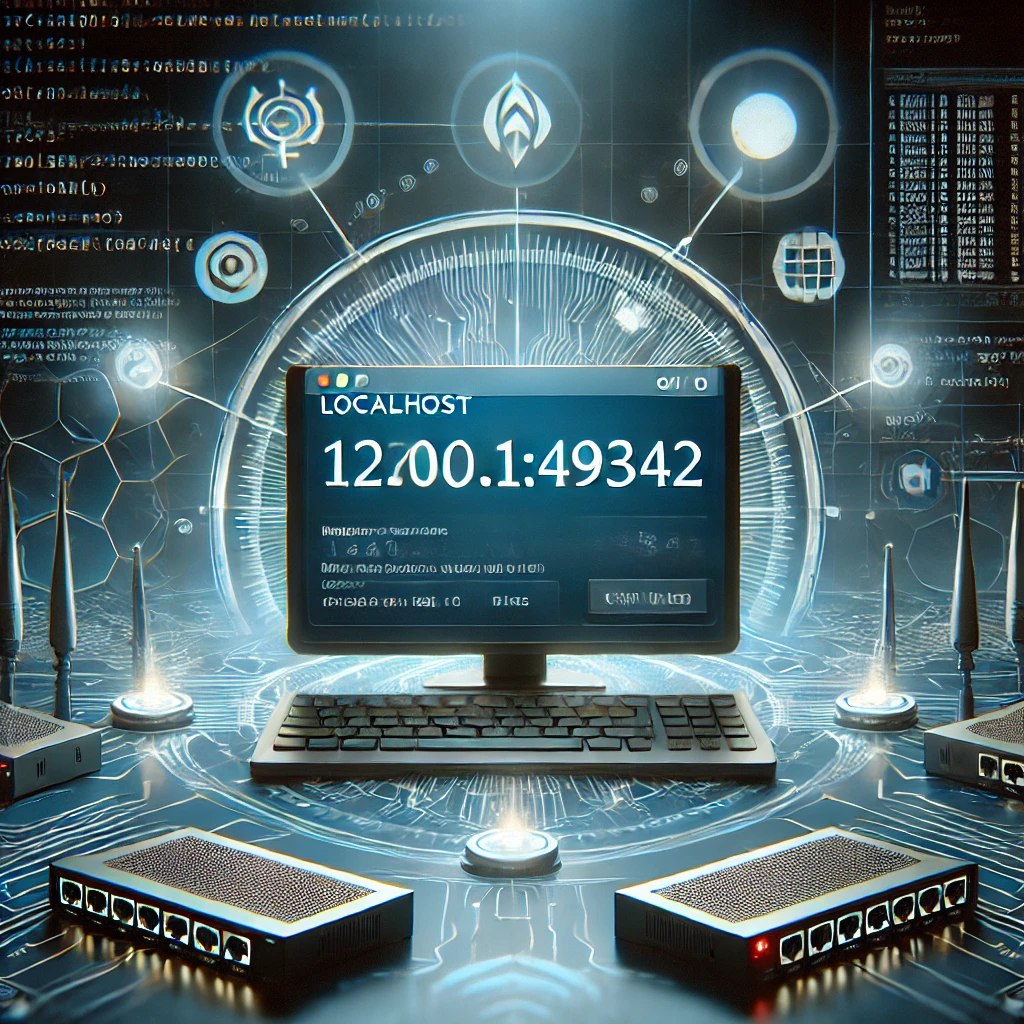Got a localhost that’s lonelier than a penguin in the desert?
Let me tell you about the most important address you’ve never heard of.
127.0.0.1:49342.
It’s like your computer’s secret treehouse.
Where all the cool testing happens.
And today, I’m spilling all the tea about this mysterious number combo.
What’s This Magic Number Soup?
Let’s break it down like a robot doing the macarena:
127.0.0.1 is your computer talking to itself.
Like that time you practiced asking someone to prom in the mirror.
49342? That’s just the door number.
Think of it as your computer’s apartment number in the big internet building.
Why Should You Care?
Because this little number combo is your best friend when:
Your code is acting more stubborn than a cat at bath time.
Your app is throwing more tantrums than a toddler at bedtime.
Your server’s playing hide and seek (and winning).
The Truth About Local Testing
Here’s what most developers do:
❌ Push code straight to production like it’s hot lava
❌ Cross their fingers harder than a pretzel
❌ Pray to the debugging gods
But smart developers?
They test on localhost first.
How to Be Friends With Your Localhost
Want to make localhost your new bestie?
Here’s the good stuff:
🚀 Step 1: Fire up your local server Think of it as inviting your code over for coffee
🚀 Step 2: Type http://127.0.0.1:49342 in your browser Like knocking on your computer’s front door
🚀 Step 3: Watch the magic happen Your code, running in its natural habitat
When Things Go Wrong (And They Will)
Sometimes your localhost gets grumpier than a cat on a diet.
Common problems?
Port 49342 is acting like a bouncer at an exclusive club.
Your server’s ghosting you harder than a bad date.
The solution?
Check if another program is hogging that port like it’s the last slice of pizza.
The Secret Sauce of Port Numbers
Here’s something most tutorials won’t tell you:
49342 isn’t special.
gasp
It’s just a number.
Like picking a random seat in an empty movie theater.
You could use:
- 3000 (The cool kids’ choice)
- 8080 (The classic)
- 1337 (For when you’re feeling extra)
FAQ Time (Because You Know You’re Wondering)
Why 127.0.0.1 and not just ‘localhost’?
Same thing, different outfit. Like Superman and Clark Kent. But 127.0.0.1 never forgets its glasses.
Can I use a different port number?
Does a bear code in the woods? Of course you can! Just pick a number between 0 and 65535. (But maybe avoid 80 and 443, they’re kind of a big deal)
What if the port is busy?
Then it’s time to play musical ports. Try another number. Your code doesn’t care – it’s not picky.
Is this the same as my website’s actual URL?
Nope! This is your local playground. Like practicing dance moves in your bedroom vs performing on stage.
The Cool Kids’ Guide to Localhost Testing
Want to test like a pro?
Here’s how:
🔥 Start small on localhost Like testing the water before jumping in
🔥 Break things (on purpose!) Better to crash on localhost than in real life
🔥 Use different ports for different projects Keep your code parties separate
Common Mistakes That’ll Make Your Code Cry
Don’t be that developer who:
❌ Forgets to start the server (Like trying to drive without turning on the car)
❌ Uses the wrong port number (Address mixups aren’t just for pizza delivery)
❌ Ignores localhost errors (They’re trying to tell you something!)
The Real MVP of Web Development
Your localhost is like your code’s personal gym.
Where it gets stronger.
Makes all its mistakes in private.
Before showing off to the world.
Pro Tips That’ll Make You Look Smart
🌟 Use localhost for rapid testing Fast as a caffeinated cheetah
🌟 Keep different projects on different ports Like giving each pet their own bed
🌟 Check your firewall settings Sometimes they’re overprotective like a helicopter parent
- Also Read: Killeen Mesothelioma Lawyer Vimeo.
When to Use 127.0.0.1:49342
Perfect for:
- Testing your shiny new web app
- Debugging that stubborn code
- Running local development servers
- Pretending you’re a hacker in movies
The Last Word
127.0.0.1:49342 might look like a robot’s phone number.
But it’s actually your ticket to smoother development.
Your personal testing playground.
Your code’s cozy home before it moves out into the big bad internet.
So next time someone asks about localhost?
You’ll be the localhost guru other devs wish they were.
You’ll be the one dropping knowledge bombs like they’re hot.
Now go forth and test locally.
Your production server will thank you.
(And so will your users!)
Remember: 127.0.0.1 – there’s no place like localhost. 🏠



